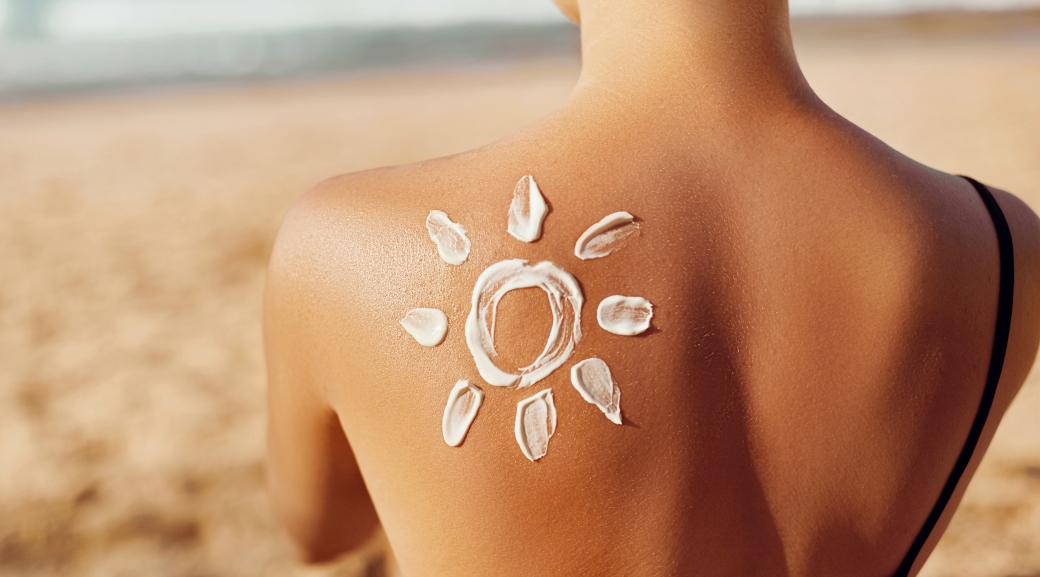Mintel beauty and personal care analyst Rosalia Di Gesu shares her thoughts on the innovation opportunities for sun-care products.
Consumers aren’t simply buying more products these days. Many are also far savvier about what they’re buying. No more so than in the skincare and antiageing sector. Women, who are the key consumers of these ranges, no longer seek out products that offer only high UV protection; instead they search out products that deliver high sun protection and added benefits thanks to advanced technology and ingredients. So far, countrywide COVID-19 lockdown restrictions have largely been lifted in APAC and other global regions. However, the threat of localised outbreaks, wariness about a second virus wave, and continued social distancing regulations are continuing to disrupt the travel industry and lead to more time spent indoors. This, in turn, has had a negative knock-on effect on the sun-care market. That said, the challenge to the sun-care segment is driving innovation to minimise any drop in sales.
COVID-19 CAN SPUR CREATIVE INNOVATION
Although a disrupted holiday/travel market will challenge the sunscreen and after-sun segments, skincare companies and manufacturers can use creative innovation to minimise a sales decrease. For example, brands can reposition selftanner as a COVID-safe way to achieve a suntan, expand blue-light protection formulas, and develop hygienic touch-free formats.
MAKE SKINCARE PRODUCTS MORE INCLUSIVE
If there’s anything the past few months have taught us it’s that the world needs to be more inclusive. Skincare companies that acknowledge this and expand their offering to include products that cater specifically to different skin colours and Mintel beauty and personal care analyst Rosalia Di Gesu shares her thoughts on the innovation opportunities for sun-care products.
hair types – rather than offering products in solely dry, oily or sensitive formulations, for example – will see their customer base expand.
STAND OUT IN A BUSY ECOFRIENDLY SUNSCREEN SPACE
It’s becoming increasingly common for consumers to seek out sunscreens that are safe, both for themselves and the environment. Brands, including those creating mineral products, can stand out by tapping into ‘clean beauty’ trends, staying abreast of new innovation, building better stories around ingredients, and by using transparent safety-related accreditation. For example, BASF’s EcoSun Pass is a methodology that assesses the environmental impact of sunscreen formulations. It supports the transparent assessment of UV filters based on internationally recognised criteria and comprises eight different parameters, from biodegradation and aquatic toxicity to endocrine disruption potential. It not only considers environmental factors for individual UV filters, but also provides a comprehensive environmental evaluation of filter systems. Here is just a selection of some of the most innovative recent launches, chosen by the Mintel Global New Products Database (GNPD).
- SPACE-PROOF BACTERIA SUGGESTS SUPERIOR EFFECTIVENESS – Dr. Jart+ Solarbiome Ampoule SPF 50+ PA++++ uses microbes – Bacillus subtilis and Deinococcus radiodurans – that were subjected to the harsh conditions of space (ultraviolet rays, radiation and temperatures above 100ºC), thanks to NASA. They were then incorporated into this product, which offers excellent sun protection and anti-ageing benefits, and helps skin recover from UV damage. Launched in April this year, it reportedly sold out in a day.
- STANDALONE SCALP SUNSCREEN – Banana Boat Hair & Scalp Defense Spray SPF 30 aligns with a scalp-care trend taking place in haircare, and protects both hair and scalp from UV rays. Its lightweight texture stops hair from becoming greasy.
- ADVANCED UV PROTECTIVE FILM – Shiseido’s Perfect UV Protector SPF 50+ uses a UV protection film, SynchroShield, combined with WetForce and HeatForce technology that makes the protective veil stronger upon contact with heat, water or perspiration.
WHAT WE THINK
Opportunity lies in meeting consumers’ trade-up demands for safer products that boast natural ingredients and offer ease of removal. Manufacturers who can offer products with comprehensive powerful protection against in addition to occasionsuitable SPF/PA values will see benefits to their businesses, as will those who can develop segmented product lines to fit usage for any occasion, place or time.
This article was first published in the Summer 2020 issue of esprit.

